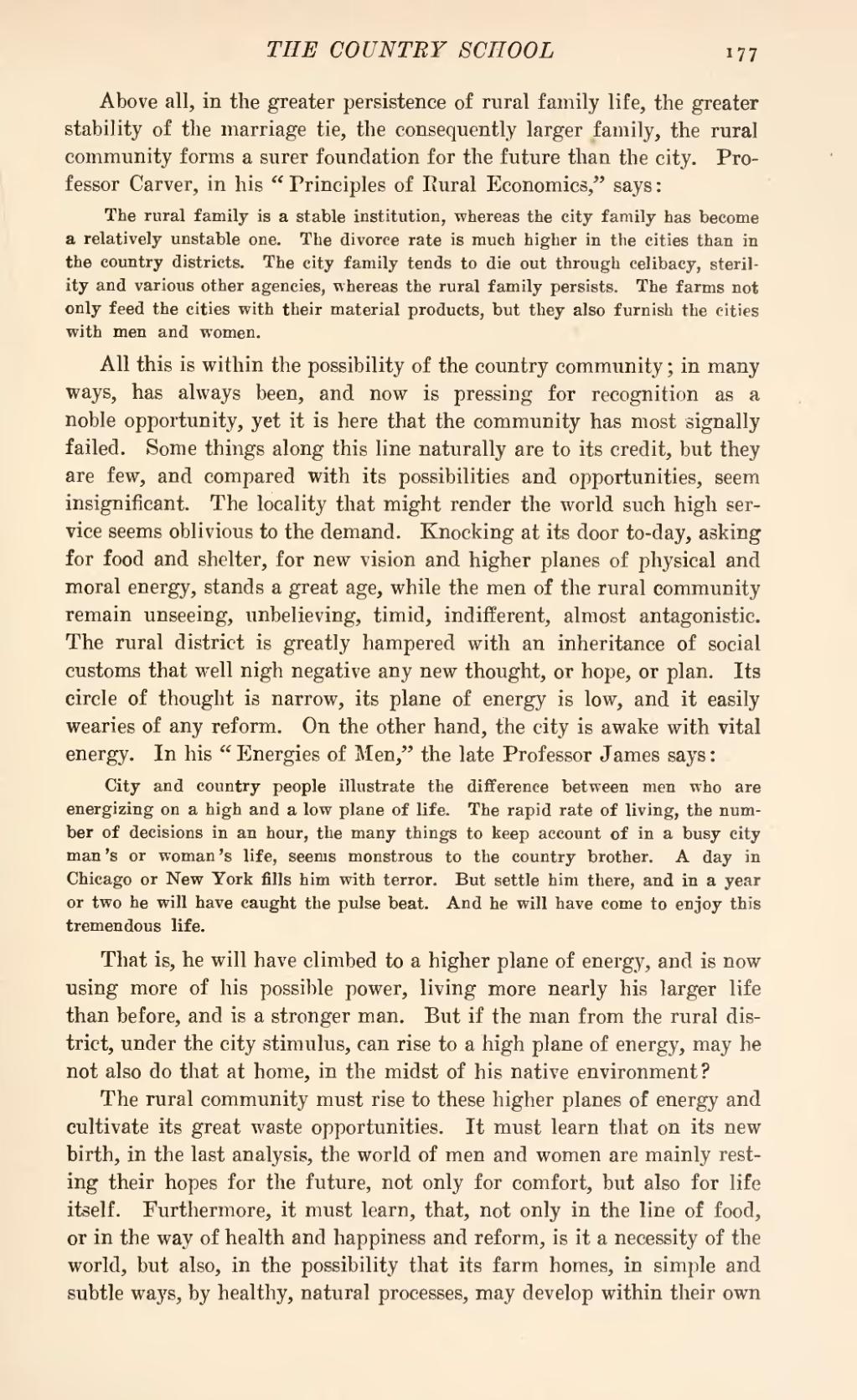Above all, in the greater persistence of rural family life, the greater stability of the marriage tie, the consequently larger family, the rural community forms a surer foundation for the future than the city. Professor Carver, in his "Principles of Rural Economics," says:
The rural family is a stable institution, whereas the city family has become a relatively unstable one. The divorce rate is much higher in the cities than in the country districts. The city family tends to die out through celibacy, sterility and various other agencies, whereas the rural family persists. The farms not only feed the cities with their material products, but they also furnish the cities with men and women.
All this is within the possibility of the country community; in many ways, has always been, and now is pressing for recognition as a noble opportunity, yet it is here that the community has most signally failed. Some things along this line naturally are to its credit, but they are few, and compared with its possibilities and opportunities, seem insignificant. The locality that might render the world such high service seems oblivious to the demand. Knocking at its door to-day, asking for food and shelter, for new vision and higher planes of physical and moral energy, stands a great age, while the men of the rural community remain unseeing, unbelieving, timid, indifferent, almost antagonistic. The rural district is greatly hampered with an inheritance of social customs that well nigh negative any new thought, or hope, or plan. Its circle of thought is narrow, its plane of energy is low, and it easily wearies of any reform. On the other hand, the city is awake with vital energy. In his "Energies of Men," the late Professor James says:
City and country people illustrate the difference between men who are energizing on a high and a low plane of life. The rapid rate of living, the number of decisions in an hour, the many things to keep account of in a busy city man's or woman's life, seems monstrous to the country brother. A day in Chicago or New York fills him with terror. But settle him there, and in a year or two he will have caught the pulse beat. And he will have come to enjoy this tremendous life.
That is, he will have climbed to a higher plane of energy, and is now using more of his possible power, living more nearly his larger life than before, and is a stronger man. But if the man from the rural district, under the city stimulus, can rise to a high plane of energy, may he not also do that at home, in the midst of his native environment?
The rural community must rise to these higher planes of energy and cultivate its great waste opportunities. It must learn that on its new birth, in the last analysis, the world of men and women are mainly resting their hopes for the future, not only for comfort, but also for life itself. Furthermore, it must learn, that, not only in the line of food, or in the way of health and happiness and reform, is it a necessity of the world, but also, in the possibility that its farm homes, in simple and subtle ways, by healthy, natural processes, may develop within their own
